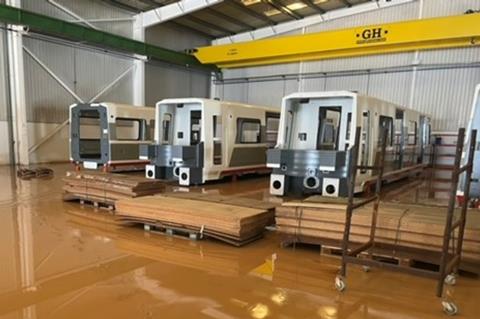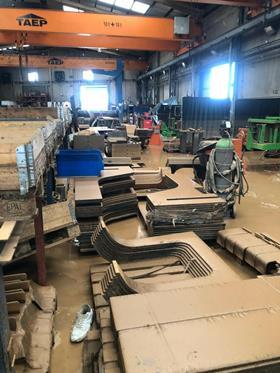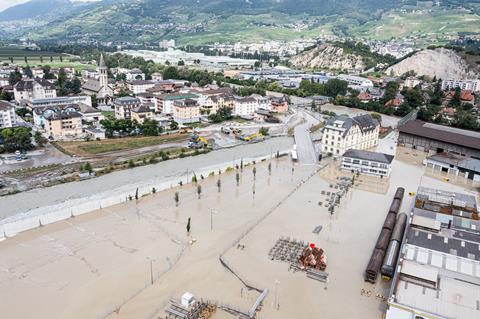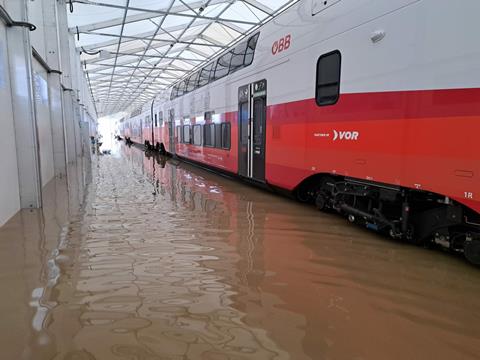
EUROPE: Stadler says three ‘severe weather disasters’ in the last five months have had a ‘massive impact’ on its supply chain and forced the company to adjust its financial guidance. A new double-deck trainset was also lost to flooding.
Spain

The company’s factory in Valencia was not damaged by the disastrous flooding in the region at the end of October, and all 3 000 employees were unscathed, but around 400 staff from the south of the city are unable to reach the plant in the north because of disruption to roads and public transport.
Several of Stadler’s external warehouses were impacted, and around 30 of its suppliers badly affected with their production halls and warehouses destroyed or filled with mud.
As result of the disruption to its supply chain Stadler Valencia is currently working at a reduced pace, with between 150 000 and 200 000 production hours postponed from 2024 to 2025.
Switzerland

Aluminium profile supplier Constellium’s plant in Valais was flooded by a storm in June and 800 tonnes of products for Stadler had to be disposed of. Stadler said it ‘immediately took counter-measures’.
Constellium restarted deliveries at the end of October, but the backlog is not expected to be cleared until the end of August 2025.
Austria

Flood defences at Dürnrohr in Austria were breached after days of heavy rain in September. This flooded Stadler’s commissioning centre to a depth of 0·5 m and destroyed a new ÖBB Kiss double-deck EMU.
Berlin U-Bahn delays
Delays to the delivery of metro trains for Berlin also had a negative impact on Stadler’s 2024 financial year.
An appeal by Alstom postponed the signing of the framework agreement with operator BVG by over a year until spring 2020, and then production was hit by the pandemic. Software problems further delayed delivery.
Only around 376 of the 1 500 cars covered by the framework agreement have so far been ordered, leading to under-utilisation of Stadler’s Berlin Pankow factory.
Unforeseeable events
On November 13 Stadler said its initial assessment is that these unforeseeable events will lead to the EBIT margin in 2024 being down by a maximum of 2 percentage points from the expected EBIT margin of over 5%. Part of the 2024 revenue will be shifted to 2025, although it is not yet possible to say to what extent, and Stadler expects that it will no longer be possible to achieve the previous revenue target of SFr3·5bn to 3·7bn in 2024.
The impact on its 2025 and 2026 financial years cannot yet be estimated, and so it has suspended its guidance until the 2025 budget and the 2026 and 2027 financial planning are revised in Q1 2025.
The company said its order books are well filled, with the backlog reaching an all-time high of SFR26·8bn in H1 2024 and 188 new orders currently being processed and a further 150 orders still in the guarantee phase.
Stadler is currently developing a catch-up programme to make up for the delays caused by the floods. During the pandemic in 2021 Stadler was unable to deliver 130 locomotives and trainsets owing to travel restrictions and supply chain disruptions, but was able to make up for this backlog as early as 2022.

















